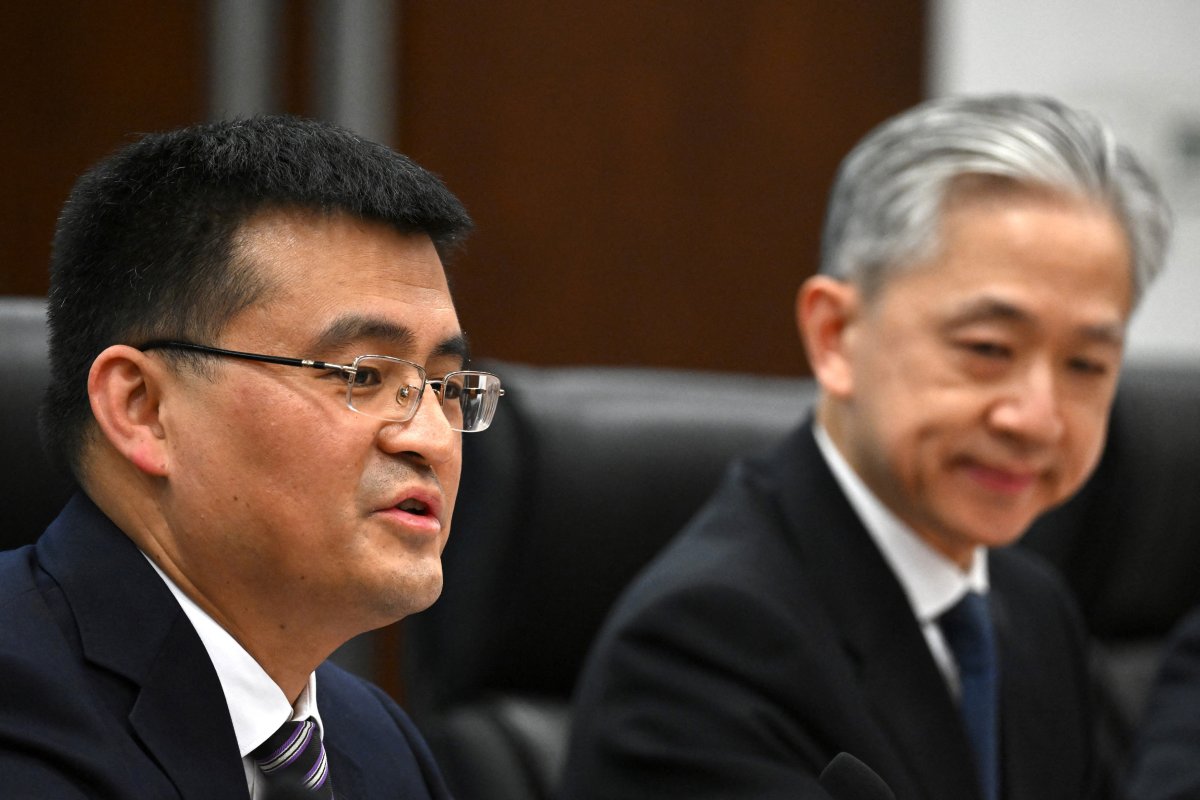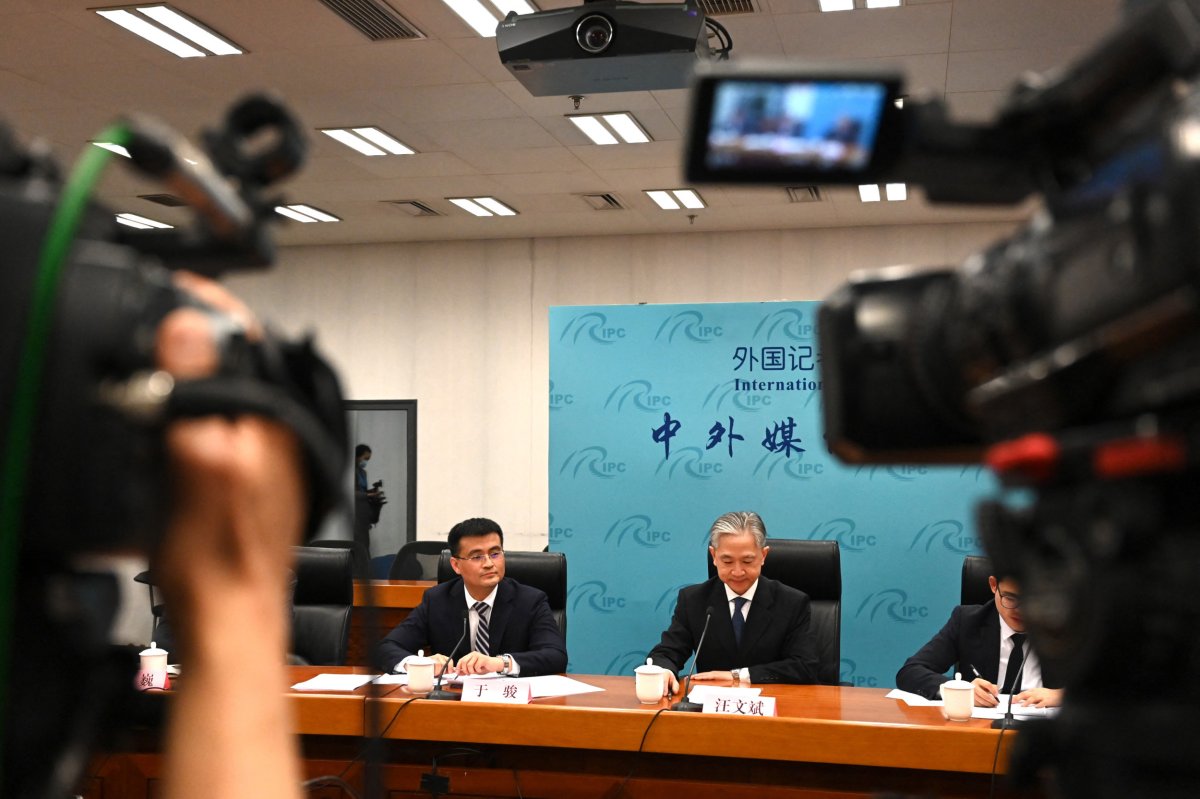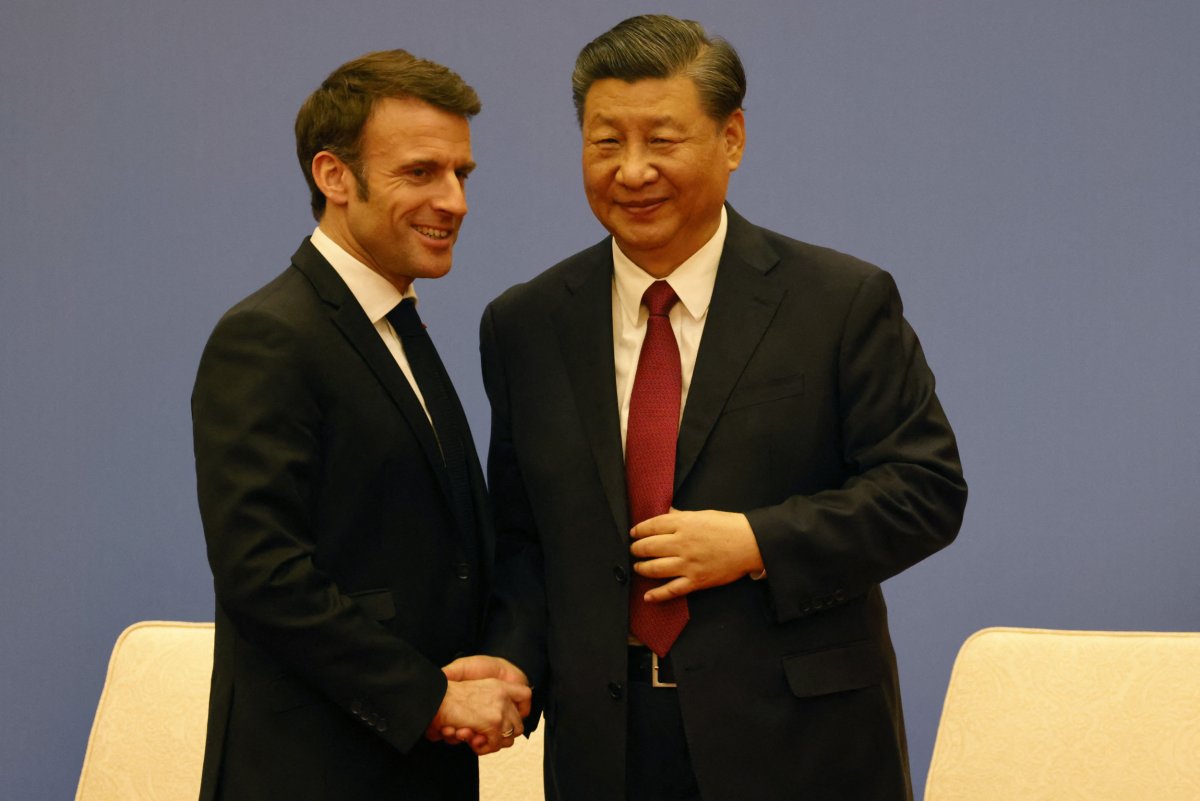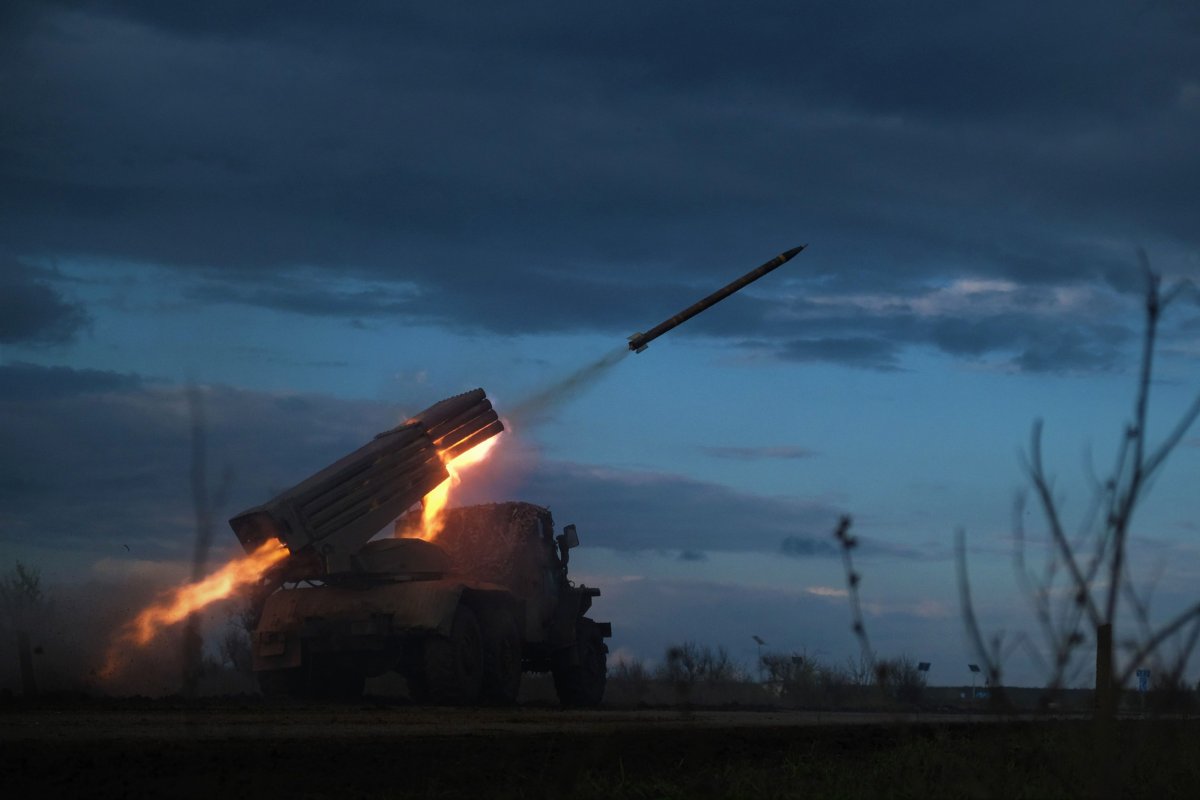As Ukraine awaits the arrival of a newly appointed peace envoy from China, Beijing is increasingly assuming a position of leadership in international efforts to bring a halt to one of Europe's most volatile conflicts of the century.
In doing so, Chinese President Xi Jinping is mounting a challenge to the longstanding power broker role of the United States, which has placed itself at the forefront of efforts to oversee a decisive Ukrainian win against Russian occupation.
But even as skeptics continue to cast doubt on Beijing's commitment and capability to achieve substantive progress, others, including former officials, argue for empowering the Chinese gambit rather than opposing it at a time when neither Kyiv nor Moscow is poised for a total victory on the battlefield.
Gérard Araud, the former French ambassador to the U.S., is among those who asserts that Western interest in Xi's peacemaking has merit, while noting wariness over Beijing's intentions.

"The Chinese have several different and maybe antagonistic goals," Araud said in response to Newsweek's question during a virtual talk hosted by the Defense Priorities think tank. "Maybe also they do it because they feel obliged to do it, maybe they don't believe in what they are doing."
But, he emphasized, "they have done it, and our interest is really to act as if we are taking it seriously, really in a sense to trap the Chinese into their own initiative, so they are obliged to own the initiative."
"It would be extremely counterproductive if the Chinese could say, 'We tried and the West didn't want it,'" Araud said. "On the opposite, we should say, 'Bravo, we really support you,' and especially by emphasizing the points about the U.N. Charter, the points about respecting independence and territorial integrity, and so on."
Xi is still channeling the momentum of a major diplomatic boost received in March when the People's Republic brokered a rapprochement between Middle Eastern rivals Iran and Saudi Arabia. A month later, French President Emmanuel Macron and a European Union delegation met with Xi in Beijing to discuss China's role in diplomacy between Russia and Ukraine as well as Europe's position in the matter.
At first glance, Beijing may appear to be an unlikely actor to usher in peace, given the unprecedented "comprehensive strategic partnership of coordination for a new era" forged between Xi and Russian President Vladimir Putin. The two men doubled down on their entente at the Winter Olympic Games in Beijing just two weeks before the Kremlin launched its war in Ukraine in February 2022.
But as Xi continued to praise ties with Russia during his next in-person encounter with Putin this past March, the Chinese leader also took the opportunity to follow up on a 12-point peace framework that put his nation at the helm of efforts to end the ongoing war. The initiative was further solidified last Wednesday when Xi held his first call with Ukrainian President Volodymyr Zelensky since the conflict began, in which he expressed his intention to send special representative on Eurasian affairs Li Hui to Kyiv.

Araud described the call as "positive," and argued it could set the stage for further movement, especially if Western powers got behind Beijing.
"I think we really have to try to drag the Chinese into the direction that we would like them to go, really so we don't appear to be stonewalling against the Chinese," Araud said. "We shouldn't give in to the argument that actually the West is responsible for the continuation of the war, that the West doesn't want negotiations."
"I think that's really quite, quite, quite important," he added.
While Washington issued a cool welcome to Beijing's success in mediating the detente between Riyadh and Tehran, the U.S. has been especially outspoken in its suspicion toward China's Russia-Ukraine diplomacy. And the White House has outright opposed any China-led attempts to bring about a ceasefire, arguing it would legitimize Russia's war and potentially give Moscow's troops a chance to regroup.
Despite Western reluctance to accept it, however, Xi's diplomatic campaign has all the makings of a serious undertaking.
Shen Shiwei, a prominent Chinese international affairs analyst and journalist, points to Xi's recent high-level encounters with Macron, Putin and others, as well special envoy Li's qualifications in handling the affair. Shen described Li, who formerly served in diplomatic roles in the Soviet Union and former Soviet republics as well as China's decade-long ambassador to Russia until 2019, as "a veteran senior diplomat on Eurasian affairs for more than four decades."
In taking on the seemingly intractable task of finding common ground between Russia and Ukraine, Shen told Newsweek that "China's core stance is to facilitate talks for peace."
"Military solutions cannot end the conflicts, and it is not an easy task to push for a political settlement," Shen said. "China believes that it is important to seize the opportunity and create conditions for a political settlement, since rational thinking and voices advocating for political solutions are now on the rise."
"The U.S. and Europe are already in the conflict," he added, "but China is well-positioned to help push for a political settlement, as it is the only permanent member of the U.N. Security Council that maintains friendly relationships both with Russia and Ukraine."

Despite Xi's close bond with Putin and his support of the Russian position that the West provoked the conflict through its eastward expansion of NATO, Zelensky has always sought to maintain a working relationship with China, a nation with the economic potential to play a significant role in the post-war reconstruction of a conflict-ravaged Ukraine. As is the case with the majority of countries around the world, Beijing is also Kyiv's top trading partner, and Ukraine is a signatory of the infrastructure-focused Belt and Road Initiative.
As such, Shen argued that Western opposition toward China's peacemaking position was counterintuitive.
"Leaders from the U.S. and Europe must have the political determination and viable solutions to push for a political settlement with China," Shen said. "Blaming China, who did not create the Ukraine crisis and is not a party to the crisis, will not help in the difficult push for a political settlement."
He conceded, however, that such an endeavor, even with growing international backing, would not be easy.
"Rational thinking and voices advocating for the political settlement of the Ukraine crisis are increasing," Shen said, "but it is still difficult for Russia and Ukraine to make significant compromises, as the two sides are currently amassing military resources on the battlefield."
Unlike in the U.S., where a virtual consensus has emerged to view the rise of China as a threat, divisions have emerged in Europe over how to address Beijing's ascendance on the world stage. Visits by Macron and German Chancellor Olaf Sholz before him to Beijing demonstrate a willingness to engage with the People's Republic at the highest levels.
Still, Washington's role is likely to prove influential should China's efforts gain further ground.
"One big problem with China taking a more constructive role is the poisonous mood in U.S.-China relations and the doom cycle of tit-for-tat actions," said Robert Manning, a senior fellow at the Stimson Center's Reimagining U.S. Grant Strategy project, who served previously in various U.S. government roles, including as acting deputy National Intelligence Officer for Economics at the National Intelligence Center.
Manning was doubtful that a solution would come quickly given the current military stalemate between Russian and Ukrainian forces, but he argued that China, alongside India and Türkiye, were "the best positioned to lobby for an end to the war."
"If we want China to be constructive, it would help if Washington politics did not see them as a cost-free punching bag, where all the gain is showing how much you can beat on China," Manning told Newsweek. "Xi's obnoxious overreach has generated a global reaction and a U.S. over-reaction. That they have an $18 trillion economy, are the number one trading and capital exporting power and a mature nuclear weapons state means we may not like them, but they are not going to disappear, and China's position means limits on U.S. power."
"The U.S. needs to adapt its diplomacy to those realities," he added.

The deterioration of U.S.-China relations that began under former President Donald Trump has yet to stabilize under President Joe Biden, though he has rejected the notion that Washington is seeking to engage in a new Cold War. Biden has instead framed the relationship with Beijing as one of competition, confrontation and cooperation, with the last category currently under extreme pressure.
Biden's repeated vows to defend the disputed, self-ruling island of Taiwan in the event of a Chinese attempt to reunify by force, coupled with high-level interactions between Washington legislators and Taipei leadership, has led China to accuse the U.S. of straying from the understandings that served as the cornerstone of their relationship established in 1979. Meanwhile, Xi has increasingly built up his forces near Taiwan and ordered exercises to demonstrate their ability to seize the island.
The U.S. and China have further fallen out over issues related to trade, human rights and other territorial disputes in the region. But while Biden seeks to shore up U.S. military might in Asia, Europe's deadliest conflict in decades continues to demand Western resources to sustain the Ukrainian war effort, putting a strain on both Washington and its allies.
China, so far, has yet to lend a military hand to either side, but the White House has cited intelligence alleging Chinese lethal aid to Russia was not off the table entirely, casting a shadow over how Washington views Beijing's position in the conflict.
"By all means, the U.S. should be quietly initiating a dialogue with China on Ukraine," Manning said. "But from the beginning most in the U.S. have heaped opprobrium on China for its failure to live up to its sovereignty and non-intervention principles and condemn the invasion. Lately, they've been condemned for military support even though they have not yet provided any lethal assistance."
Manning argued that a deal could also prove ultimately beneficial to Ukraine. While he had "doubt" as to whether "a full settlement is possible as long as Putin is in power," he said "a Korea-type armistice could consolidate Ukraine's gains and allow them to begin reconstruction while tabling unresolved issues."
"That is likely why Zelensky is interested in China," he stated.
This interest has yet to manifest into any tangible deal, and obtaining buy-in from either side of the conflict is far from guaranteed. But growing interest in Europe toward engaging with China on potential solutions to a war being waged with no end in sight on the continent threatens to put the U.S. on the sidelines of future negotiations.
"I think it would be preferable to calmly deal with China," Manning said, "and explore what is possible."
Uncommon Knowledge
Newsweek is committed to challenging conventional wisdom and finding connections in the search for common ground.
Newsweek is committed to challenging conventional wisdom and finding connections in the search for common ground.
About the writer
Based in his hometown of Staten Island, New York City, Tom O'Connor is an award-winning Senior Writer of Foreign Policy ... Read more
To read how Newsweek uses AI as a newsroom tool, Click here.








